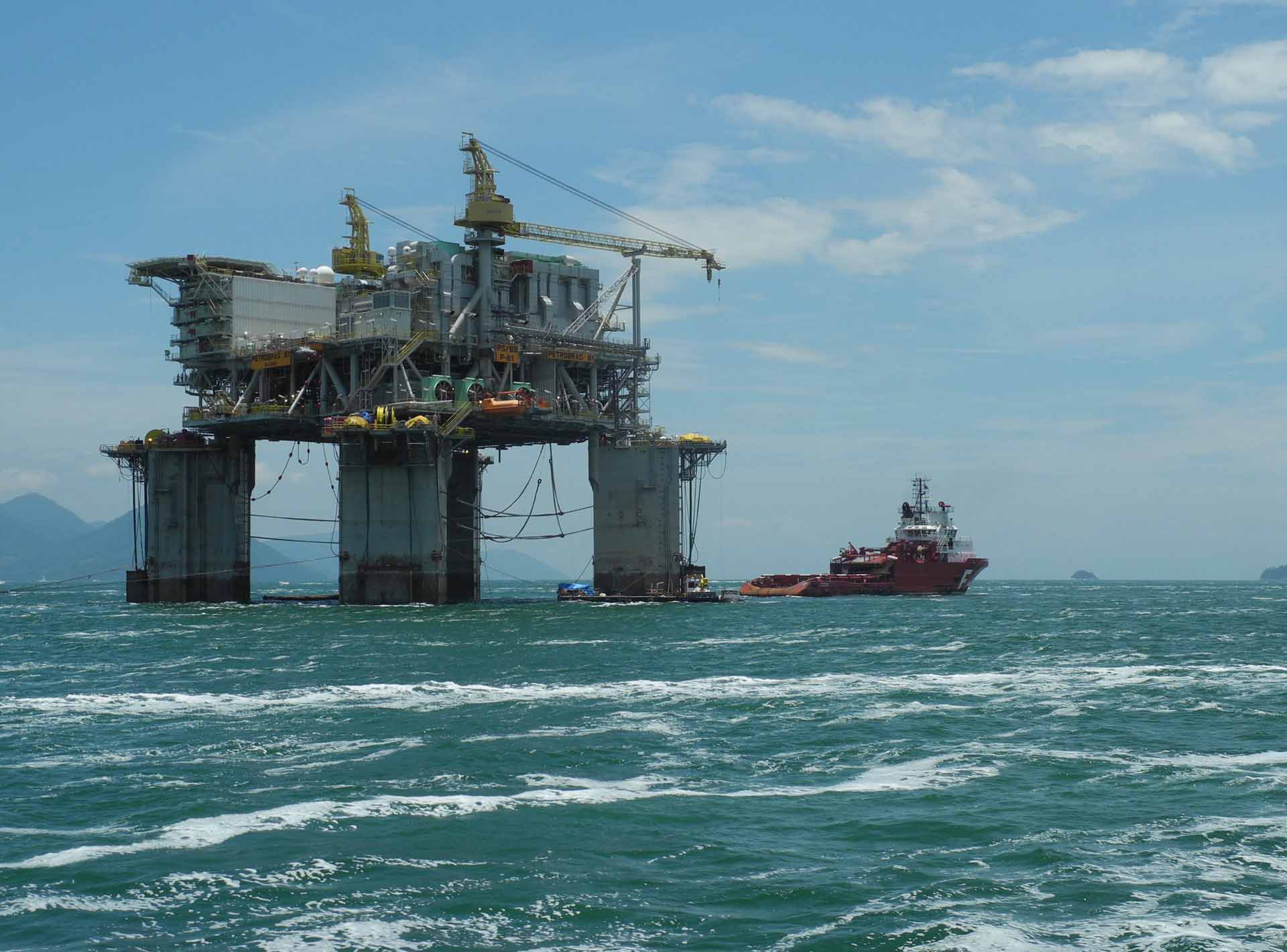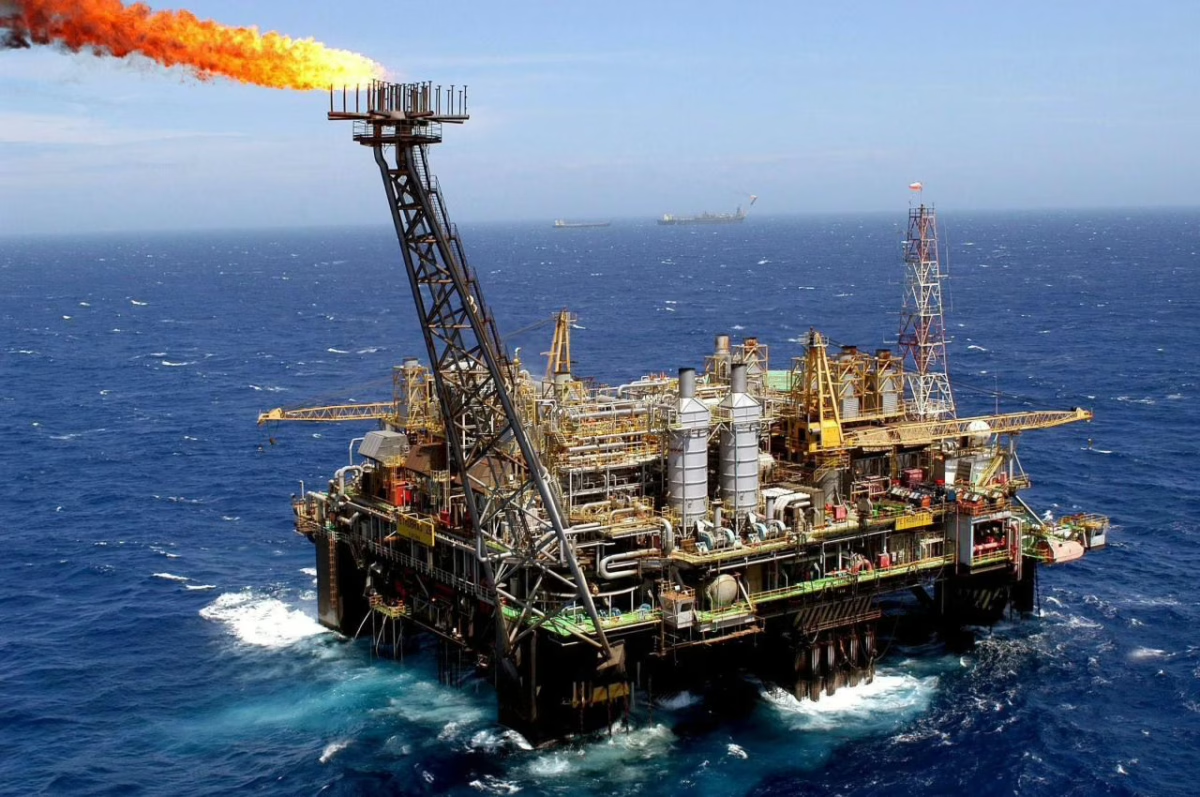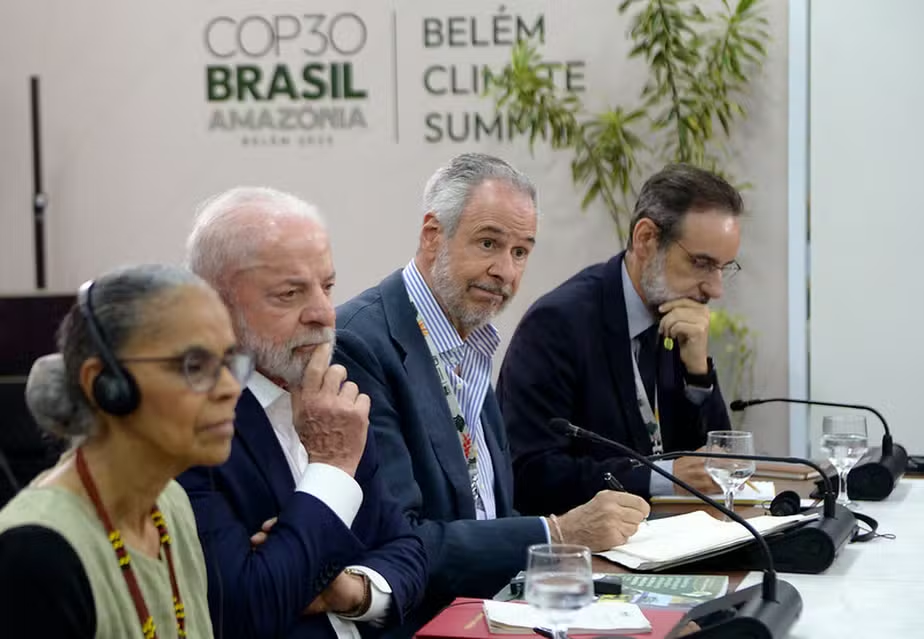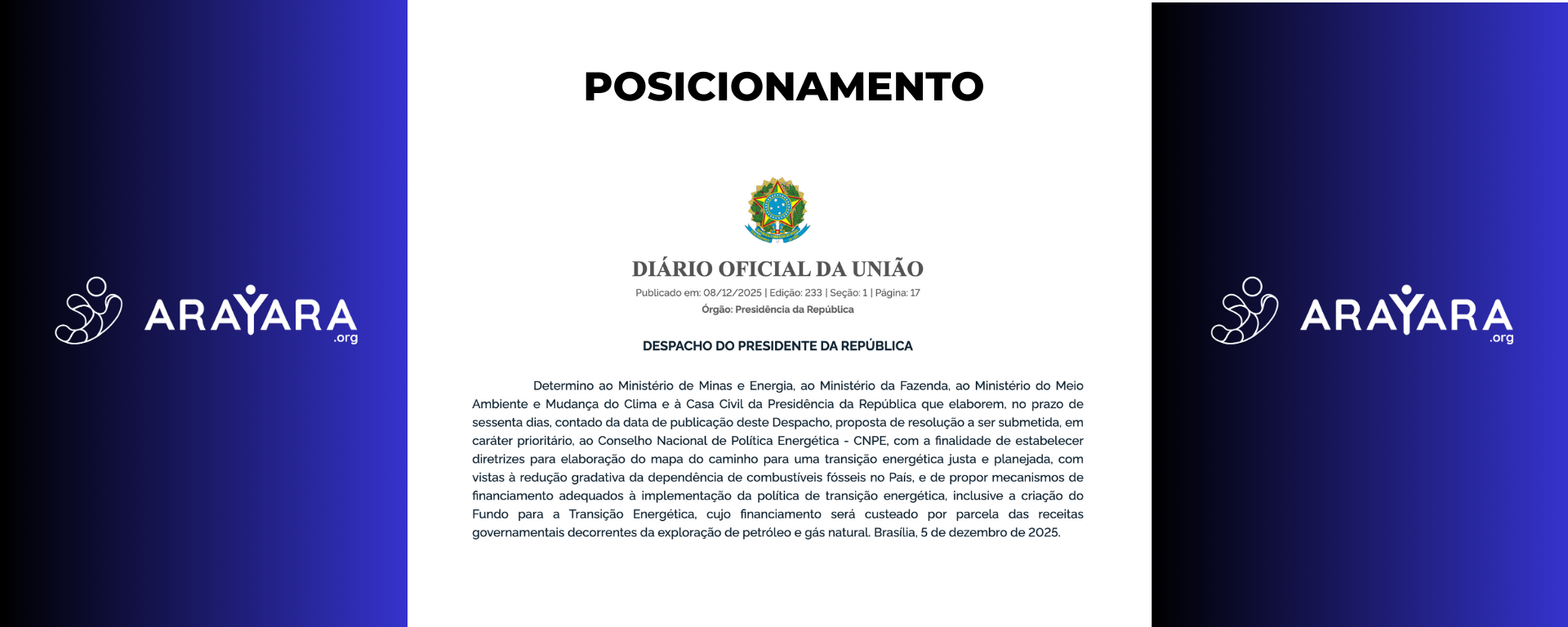Document signed by 61 institutions states that Brazil should lead the construction of an agreement
A manifesto signed by 61 Brazilian non-governmental organizations calls for COP28, the UN (United Nations) climate conference, to deliver an effective plan for the gradual elimination of fossil fuels.
The institutions are also pushing for the creation of a tax on unexpected profits from oil companies (those obtained in times of crisis, such as the Ukrainian War), to be used for actions to combat climate change in poor and emerging countries. The document, prepared by the Climate Observatory — which brings together NGOs and research groups focused on environmental issues — was released this Thursday (16), two weeks before the start of the summit, which takes place from November 30 in Dubai , in the United Arab Emirates.
According to the organizers, the text must be delivered to the Secretariat of the Presidency of the Republic, Itamaraty and the Ministry of the Environment and Climate Change as a demand from civil society for goals to be taken to the COP.
The manifesto highlights the most recent analyzes of fossil emissions in the world, which indicate that without a drastic cut in production and demand it will not be possible to comply with the Paris Agreement.
“The burning of oil and fossil gas in fields currently in production alone would account for 140% more climate pollution than the carbon budget available to limit global warming to 1.5°C. And, if the production expansion plans of the 20 countries that emit the most are implemented, this budget would be exceeded by 190%, thus ‘contracting’ a dangerous warming of more than 2°C”, says the document.
To resolve the problem, NGOs are calling for clear deadlines to be defined for the gradual reduction (known in climate negotiations jargon as “phase-out”) of coal, gas and oil by 2050, considering the different socioeconomic realities of the countries involved. “An agreement to phase out fossil fuels should not mean economic ruin for developing countries,” states the text. “Nor does it mean closing all wells at once: we need decarbonization schedules by region/country that set goals and dictate the pace of fossil abandonment, as well as providing the financing to achieve them.”
Among the paths suggested for this decarbonization process are the prohibition of opening new exploration fronts and the definition of priority zones, from the point of view of biodiversity protection, where extraction would be prohibited.
“In our understanding, the Amazon has to be at the top of this list, both in terms of offshore exploration [on the high seas] and in terms of onshore exploration [on land]”, says Suely Araújo, public policy coordinator of the Climate Observatory.
It is also suggested that mechanisms be created to exchange the external debt of poor and developing countries for actions to mitigate and adapt to the climate crisis.
The entities also point out that rich countries and petrostates should be the first to give up the exploration of oil, gas and coal. They also argue that these nations should pay a global tax on unexpected profits from fossils, as has already been demanded by UN Secretary-General, António Guterres.
“[These] are the excessive profits that oil companies have made in situations like the invasion of Ukraine, then the [price of] oil goes up and people are filled with money”, explains Araújo, highlighting that moments of crisis end up generating more profit for these companies.
The idea is that the amount raised will provide financial support for poor and developing countries in their efforts to mitigate and adapt to climate change.
Brazil is one of the largest oil producers
In the Brazilian case, she says that the country has responsibilities. “Petrobras is a big oil company. We are not small in this market,” she says.
Brazil is currently eighth in the world in oil production. In March, however, the Minister of Mines and Energy, Alexandre Silveira, announced plans to scale national production and make Brazil the fourth largest global producer.
The expert emphasizes, however, that Brazilian internal demand is met with the wells that are already explored today. “So, all this ambitious planning is for export. As if the oil that will be burned in another country does not interfere with the global climate balance. It won’t count in our emissions, but it will burn somewhere. And the crisis is global, the climate crisis does not respect geographic borders.”
Nicole de Oliveira, executive director of the Arayara Institute, focused on the issue of fossil fuels, states that the developmental discourse that oil generates wealth is not reflected in the reality of Brazil and Latin America.
“An example is the city of Macaé, which is the capital of pre-salt and oil exploration [in the country],” she says. The municipality of Rio de Janeiro gained the title after the discovery of oil in the Campos Basin, in the early 1970s.
“When we think of a city that has been exploring for so long, it should be a very rich city, with all the resources available to the population, the best streets, the best schools, reference hospitals. It should be a mini Norway”, says the environmentalist. “And, when we look at the city, there are 40 thousand people living below the poverty line and there is no water available for [the entire] population.”
According to the Saneamento Brasil Panel, from Instituto Trata Brasil, 9% of residents did not have access to water in 2021.
The document also states that Brazil has favorable conditions to lead the construction of the proposed agreement.
“The country today has a government that, despite many contradictions, prioritizes the fight against climate change”, says the text. “In addition, the country will hold the presidency of the G20 in this upcoming period and will organize COP30 in 2025, which gives it the chance to guide global ambition and lead by example.”
The president of the National Energy Consumers Front, Luiz Eduardo Barata, points out that Brazil does not need fossil fuels to generate electricity.
“We have a particular situation in the world because we have all the other sources: hydroelectric, wind, solar [plants], he explains. “This means that we can quickly stop the use of fossil fuels to generate electricity — but what we have seen, in fact, is a contrary movement.”
He recalls, for example, the obligation to contract gas-fired thermoelectric plants included in the Eletrobras privatization project. The increase in gas use has also been promoted by the Lula (PT) government, through Silveira.
Barata, however, says he is skeptical about taxing oil company profits. “I think the problem we have today is not one of money, it is one of political will, of awareness of what is happening on the planet,” he says. “So, there may [even] be lots of money, if there is no political will, the problem will not be resolved.”
















